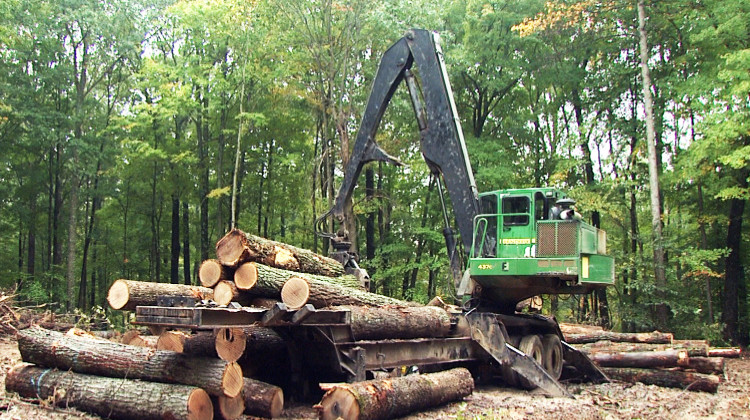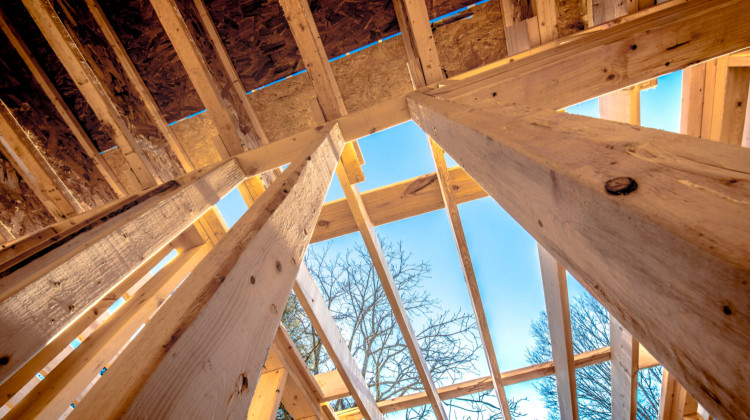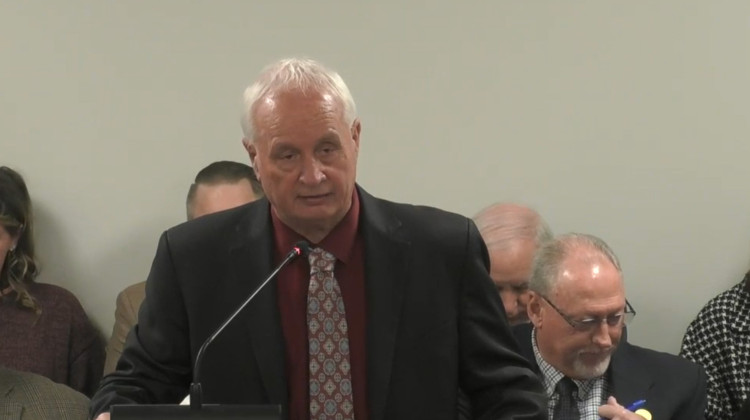A recent survey commissioned in part by Indiana’s logging industry and its allies cites what it says is a $10 billion impact on the state’s economy. The study highlights an increase in both the state’s timber acreage and yearly harvest over the last 50 plus years and says the state should continue those trends, but environmental groups worry about the study’s advice for expanding production.
Indiana Hardwood Lumbermen’s Association executive director Ray Moistner says Indiana has untapped potential.
“The hardwood industry for years and years has been one of the best-kept economic secrets in the State of Indiana,” says Moistner. “And sometimes people want to look at you sideways when you tell them that hardwoods are the state’s largest sector of the agricultural economy; bigger than corn, soybeans, pork and poultry all combined. And a large part of that is due to the vertical integration of the industry.”
The Hardwood Assessment, commissioned in part by the state’s loggers, says that while the state already has more than 3,000 active businesses related to the lumber industry, there is still room to grow.
But Indiana Forest Alliance conservation director Rae Schnapp says the state needs time to renew previously-harvested old-growth forests, which is less likely to happen if logging is increased. She’d like to see more avenues for combatting what her group sees as the negative environmental consequences of harvesting trees.
“Many of our cities have committed to being carbon neutral and the only way they’re going to be able to do that is to buy carbon offsets,” says Schnapp. “But right now there are no carbon offsets to be had in Indiana.”
She says apart from the environmental loss of trees, cutting down more would hurt tourism.
“So we think that there is huge potential for expanding on the recreational uses of our state forests and generating revenue from them,” says Schnapp.
Moistner contends families operating hardwood businesses are some of the best stewards to the land, and environmental groups need not worry.
“It’s in nobody’s best interest to cut down the forest to the point where they’re not sustainable,” he says. “What family business would put themselves out of business by overcutting or not taking care of a forest?”
Schnapp says her organization is preparing a report on the economic value of preserving forests instead of harvesting lumber.
 DONATE
DONATE








 Support WFYI. We can't do it without you.
Support WFYI. We can't do it without you.